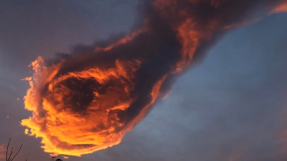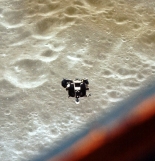Since they were first discovered in 2007, powerful transient radio flashes in the universe referred to as "fast radio bursts" (FRBs) have puzzled space scientists. These high-energy astrophysical phenomena just pop off randomly in space, with astronomers clueless about what made them and where they came from.
For the first time in nearly a decade, a team of astronomers were able to reach a breakthrough in the study of FRBs: They were able to pinpoint the exact source of these short but spectacular flashes of radio waves.
Using data from the Commonwealth Scientific and Industrial Research Organisation (CSIRO) radio telescopes in eastern Australia and the National Astronomical Observatory of Japan's Subaru telescope in Hawaii, the space scientists were able to calculate that one of the FRBs was from well beyond our home galaxy, about 6 billion light years away.
Dr. Simon Johnston, head of Astrophysics at CSIRO and a member of the research team, explained that this finding can pave the way for more knowledge about these radio flashes.
"Our discovery opens the way to working out what makes these bursts," Johnston explained in an article published on the CSIRO website.
There is, however, something bizarre about FRBs that astronomers have yet to find an explanation for: They seem not to repeat themselves.
"Why it would last only a millisecond and not repeat is a big mystery," Jill Tarter, who co-founded SETI and is the former director of the Centre for SETI Research but was not part of the new research, told The Business Insider.
Tarter suggested that FRBs may actually be signs of alien life.
"[If] they know which planets are life-bearing in the galaxy ... they could perhaps decide to eliminate these inhabited planets one after another, sequentially, which would provide a signal that showed up once or maybe twice and then didn't show up again for some totally unknown period," she explained.
















